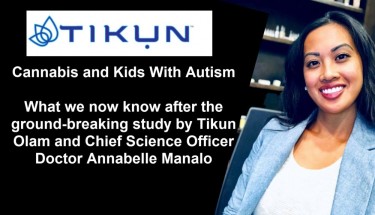
Medicinal Cannabis for Autism – What the Latest 3 Studies Just Released Tell Us About ASD And Cannabis
About 1% of the world’s population suffers from Autism Spectrum Disorder (ASD), and this number is gradually increasing as doctors become more adept at diagnosis.
It can be painful and challenging when a loved one is struggling with symptoms of autism. In extreme cases, this can include self-harm, aggression, and severe anxiety. Despite all the advances in medicine, we still don’t have a cure for autism spectrum disorder, although the treatments available mostly focus on managing symptoms so they don’t interfere with the daily lives of people with the condition. Since it affects everyone differently, the symptoms are also very different, which is why tailored treatment plans are necessary.
Currently, psychotherapy and prescription medication are the two main types of treatment for individuals with autism. Many types of psychotherapy are used depending on the symptoms; These may include one or more: physical therapy, occupational therapy, assistive technology, speech therapy, or applied behavior analysis. As for drugs, the FDA has only approved two: Risperdal and Abilify, which are antipsychotics meant to reduce aggression and irritability.
Treating and managing autism can be extremely difficult, but thankfully, cannabis has shown to be beneficial in both children and adults with the condition.
What the studies say
A recent review led by Mariana Babayeva, a professor at Touro College of Pharmacy in New York, found that there is a growing body of clinical trials that have shown promising results in using cannabis to treat autism spectrum disorders.
“Because of its crucial role in regulating emotions and social behavior, the endocannabinoid system represents a potential target for the development of a novel autism therapy,” the study states. The authors added, “Several studies suggest that dysfunctions in the components of the endocannabinoid system may contribute to the behavioral deficits and neuroinflammation seen in autism.”
It is also a widely accepted hypothesis within the medical community that since the receptors of the endocannabinoid system are found in the central nervous system, this explains the link between cannabinoids and an improvement in autism symptoms.
In 2020, researchers from Tufts University in Boston revealed that when working with children and young adults who suffered from ASD but were treated with hemp or cannabis products, 60% of those with ASD-induced aggression reported that after treatment noticed improvements. Meanwhile, 91% of those who had both ASD and epilepsy saw improvements in seizures.
Then, in 2021, a clinical review of the existing literature on cannabis for autism concluded that “cannabis products have been shown to reduce the number and/or intensity of various symptoms, including hyperacidity, bouts of self-mutilation and anger, sleep problems, anxiety, restlessness, psychomotor excitement, irritability, aggressiveness, endurance and depression. In addition, they are associated with improvements in cognition, sensory sensitivity, attention, social interaction and language.” The study authors then concluded that “cannabis and cannabinoids show promising effects in the treatment of symptoms associated with with ASD and can be used as a therapeutic alternative to relieve these symptoms.”
It has become clear in the medical community that research into cannabis in autism, while still in its early stages, is controversial. That hasn’t stopped families from asking doctors and seeking professional medical advice about using cannabis for autism symptoms, as there are significant cases of anecdotal evidence that it can be helpful with many of its symptoms, particularly when it comes to Calm down aggression and reduce seizures. Cannabidiol (CBD) has been cited as particularly helpful because it is non-psychoactive and has a long track record of treating seizures safely, even in children.
In fact, many parents consider the use of medical marijuana to treat autism symptoms to be very important. A parent advocacy organization called Mothers Advocating Medical Marijuana for Autism (MAMMA) has chapters in several states; Their website has numerous testimonials from families who say cannabis has helped their children. Sadly, many of these families are medical refugees who have had to relocate to states just so their children can benefit from states with medical marijuana laws where it can be used for seizures and other symptoms. There were families who also anonymously sent in their testimonials, saying that they used cannabis illegally because we still don’t have laws allowing autistic people to use cannabis.
There are currently 14 states that list autism as either a qualifying condition or a debilitating condition. But that’s not enough: no matter where you live, you need access to the medicines that can transform your life — even if you choose cannabis. Even if you choose to treat your child with cannabis.
Conclusion
More studies are ongoing to help shed light on how the body and endocannabinoid system in autistic people respond to cannabinoids. While the exact mechanisms are still a great mystery, we can at least say that cannabinoid compounds work in autism. However, potency, the type of cannabis product, and the dosage taken also play a role. There is some research that says THC is best with CBD, while others say CBD is best on its own.
Although cannabis can help, parents wishing to give their children medicinal cannabis should keep in mind that it should not be viewed as a panacea. At best, cannabis is likely to work more effectively with other autism therapies. Talk to your doctor or a doctor in a state that has legalized the use of cannabis for autism to determine the best path for you or your loved one.
CANNABIS AND AUTISM WHAT THE BIGGEST STUDY EVER SAYS READ THIS…

WHAT HAS US THE LARGEST STUDY ON CANNABIS AND AUTISM EVER DONE!

Post a comment: